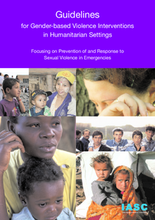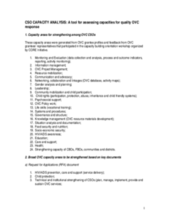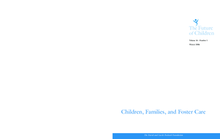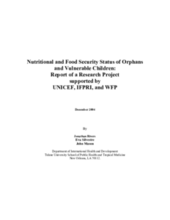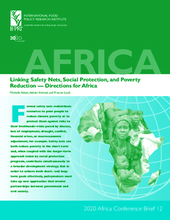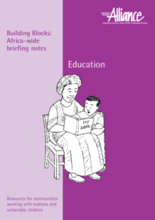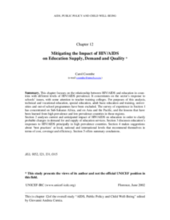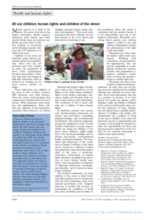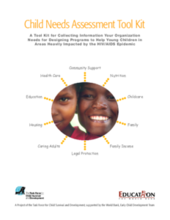Displaying 231 - 240 of 243
Comprehensive guidelines for dealing with the planning, establishment, and coordination of multisectoral interventions to prevent and respond to sexual and gender-based violence.
This document provides a tool that was used to assess broad capacity areas for quality OVC response in Uganda.
Comprehensive toolkit and resource pack for mobilising community-led OVC care. Includes detailed resources for training home visitors.
In assessing the practice of foster care in the US and its current limitations, this series of articles advocates for the implementation of health assessments for all children in care, support to preserve permanency and assist birth families, comprehensive supports for foster families, specialized services for children in need, increased cultural competency in social work practice, coordinated services across sectors for families in need and comprehensive well being assessments for children in care.
A report on the nutritional status of orphans in sub-Saharan Africa. Seeks to understand the relationship between child vulnerability and food security. Contains conclusions and recommendations relevant for future monitoring initiatives.
A short discussion of various safety net program options and considerations for effective program design. Focus on reducing poverty in sub-Saharan Africa
Outlines the impact of HIV/AIDS on children’s education and suggests strategies for meeting children’s educational needs. Includes a list of follow-up resources.
Outlines the relationship between HIV/AIDS and education in order to clarify probable changes in demand for and supply of education services. Includes a discussion of responses and best practices.
Brief article arguing for doctors to take a lead role in caring for children on the street. Suggests that physicians could provide direct patient care, advocacy for children's rights, and leadership for reform at the community and national level.
A comprehensive tool kit providing a methodology, questionnaire and software for assessing the needs of young children affected by the HIV/AIDS epidemic. Used to help design of service programs, secure funding, and monitor and evaluate programs specifically targeting the needs of young children and their families.

